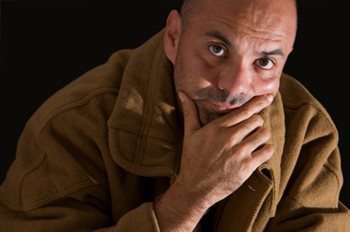Healthy Living
Be Aware: Colonoscopy Can Screen for and Prevent Cancer
If you could take a few simple steps to prevent cancer, would you?
Most of us like to think we’d do anything we can to stay healthy. Well, almost anything. Until you reach that milestone birthday—for most, that’s age 50—and your doctor tells you it’s time for a colonoscopy. Even the most punctual people find themselves putting it off.

March is Colorectal Cancer Awareness Monthand a good time to remind you, with help from UR Medicine Gastroenterologist Dr. Thomas Werth, why having a colonoscopy is so important.
Colon cancer—the second most common cause of cancer deaths in the U.S.—is a cancer that is entirely preventable and curable, if it’s picked up at the early stage. The way to do that is with a colonoscopy: a procedure with a dual purpose for many.
Colonoscopies not only allow doctors to examine the colon and rectum, they provide the chance to remove precancerous growths known as polyps. While most polyps are benign (not cancerous), they are how most colorectal cancers start. So, regular screening can often find colorectal cancer early, when it is most likely to be curable. And, in many cases, screening can also prevent colorectal cancer altogether.
If fear of the unknown is holding you back from scheduling your colonoscopy, this information will help you know what to expect:
- Some say that preparing for a colonoscopy is worse than the test itself. While it’s true that to prepare you have to stick to a clear liquid diet and drink fluids to clear out your bowel, medications used to help with that are far less harsh today than five or 10 years ago. Most people don’t have the cramping or discomfort that used to accompany the prep. You can expect to spend extra time in the restroom the evening before your test but it’s a necessary step to be sure your test can be completed successfully.
-
Other than a slight needle prick to get your IV started, the procedure is painless. You’ll be given medication through the IV to make you drowsy and take away any potential pain or discomfort. Most people feel as though they’ve taken a nap and are surprised when awakened to learn the test is done. O
 n average, a colonoscopy takes 20 to 40 minutes from start to finish.
n average, a colonoscopy takes 20 to 40 minutes from start to finish. - After you’re alert, the doctor will talk with you about your test and let you know if any polyps were found, and if any further action is necessary. There’s about a 15 to 25 percent chance that your screening colonoscopy will identify polyps, which can usually be removed during the procedure.
- The majority of patients learn that everything was normal and they’re set for 10 years before they’ll need to repeat the test. Most people are on their way home just a couple of hours after their appointment time.
- Down time is minimal, usually beginning with the evening before and continuing through the day the test is done. You may feel sleepy the rest of the day and shouldn’t make any major decisions. You shouldn’t drive that day. You will probably be hungry but will feel fine and may eat a normal meal. By the next morning, you may return to normal activities.
Whether you’ve reached that magical age or you have a family history that warrants a screening, when your doctor refers you for a colonoscopy, don’t put it off. It could save your life.
Still not convinced? UR Medicine is proud to partner with WROC News Anchor Kevin Doran, who courageously volunteered to have his screening colonoscopy live, so you can see how simple this important step in your wellness can be. The live colonoscopy is scheduled for Tuesday, Feb. 25. Click here for more information.
Update: Click here to learn the results of Kevin Doran's colonoscopy.

Thomas E. Werth, M.D., is a UR Medicine Gastroenterologist and an associate professor of Medicine in Gastroenterology and Hepatology at the University of Rochester Medical Center. Board-certified in Internal Medicine, Gastroenterology and Transplant Hepatology, Dr. Werth serves as the Program Director of the Gastroenterology Fellowship training program. Click here to see Dr. Werth discuss the importance of colonoscopies.

